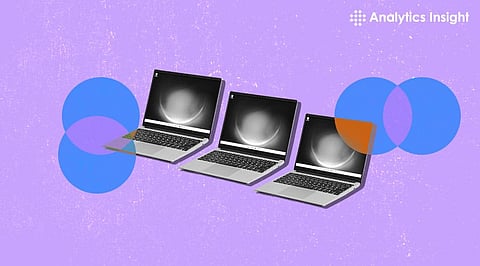

As a B.E. CSE (Computer Science and Engineering) student specializing in Artificial Intelligence (AI) and Machine Learning (ML), having a powerful and reliable laptop is essential for handling complex algorithms, running resource-intensive simulations, and engaging in programming tasks. The right laptop can significantly enhance your learning and development experience.
One of the primary considerations for a laptop for AI and ML work is performance. Opt for a laptop with a robust processor, ideally an Intel Core i7 or AMD Ryzen 7. These processors offer multiple cores and high clock speeds, providing the necessary computational power for running intricate algorithms and simulations.
Machine Learning and AI applications can be memory-intensive. Aim for a laptop with at least 16GB of RAM to ensure smooth multitasking and efficient handling of large datasets. If your budget allows, consider a laptop that allows RAM upgrades for future scalability.
GPU plays a crucial role in accelerating AI and ML tasks, especially with frameworks like TensorFlow and PyTorch. Laptops with dedicated GPUs, such as NVIDIA GeForce or Quadro series, are preferable. GPUs significantly enhance the performance of deep learning models and speed up training times.
Given the substantial datasets involved in AI and ML projects, ample storage space is vital. Consider a laptop with a combination of a fast SSD (Solid State Drive) for quick data access and a larger HDD (Hard Disk Drive) for storage. A minimum of 512GB SSD is recommended for a smoother experience.
A high-resolution display with accurate color reproduction is beneficial for tasks like data visualization and image processing. A Full HD (1920 x 1080) or higher resolution, coupled with an IPS panel, ensures clarity and better viewing angles.
As a student, portability is likely a key factor. Find a laptop that strikes a balance between performance and mobility. A 14 to 15.6-inch screen size is usually a sweet spot for most students, offering a good compromise between visibility and mobility.
Long-lasting battery life is essential, especially when you need to work on projects or study without access to a power outlet. Aim for a laptop with at least 8 hours of battery life to get through a full day of classes or coding sessions.
Ensure that the laptop has an array of ports for connecting external devices. USB Type-C, USB 3.0, HDMI, and an SD card reader are valuable additions. A Thunderbolt port can be advantageous for high-speed data transfer and connecting to external GPUs.
Investing in a durable and well-built laptop is wise, as it will likely endure the rigors of student life. Look for laptops with a sturdy build, quality materials, and good heat management to ensure longevity.
The choice between Windows, macOS, or Linux depends on personal preference and specific software requirements. Most AI and ML tools are compatible with all major operating systems, but ensure your preferred software stack is available on your chosen platform.
Join our WhatsApp Channel to get the latest news, exclusives and videos on WhatsApp
_____________
Disclaimer: Analytics Insight does not provide financial advice or guidance. Also note that the cryptocurrencies mentioned/listed on the website could potentially be scams, i.e. designed to induce you to invest financial resources that may be lost forever and not be recoverable once investments are made. You are responsible for conducting your own research (DYOR) before making any investments. Read more here.
